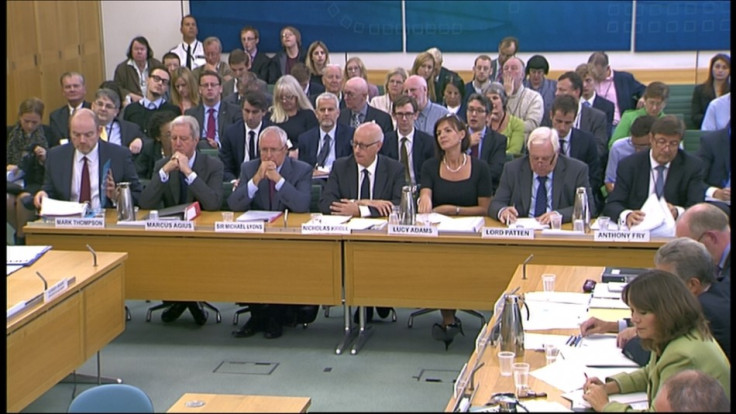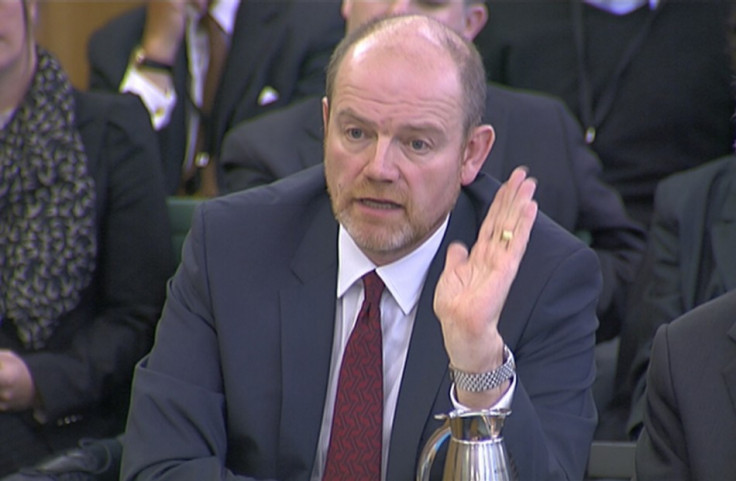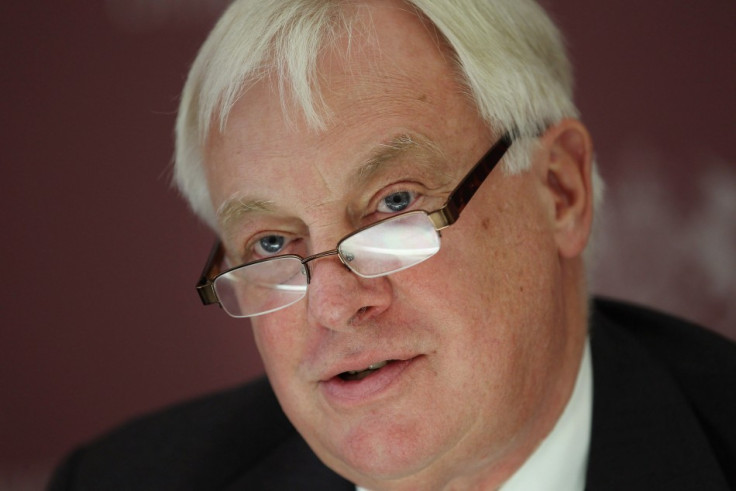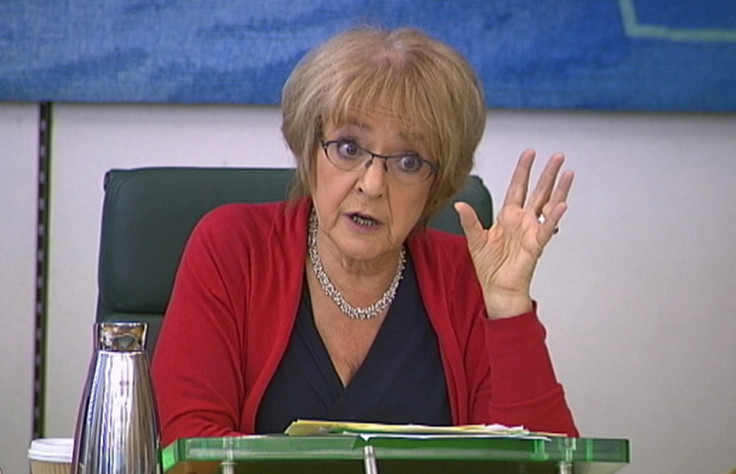BBC Bosses Lord Patten and Mark Thompson Fudge Responsibility over £25m Payoffs Row
Margaret Hodge accuses senior executives of unedifying display which has damaged reputation of BBC

Lord Patten and Mark Thompson both denied responsibility for massive payoffs handed out to senior managers by the BBC between 2009 and 2012.
In a bizarre sniping match, both men attacked each other before a government committee to say that they were not to blame for the BBC's generosity.
The two were among seven current and former senior BBC executives and members of the BBC Trust to appear before the House of Commons Public Accounts Committee to answer questions about the payoffs.
The corporation paid out £25m to its executives - £2m more than their contracts required.
The largest was to outgoing deputy director general Mark Byford, who received £1m when he left the company in 2011. George Entwistle's £450,000 payoff was also widely criticised. He left his position as director general after 54 days in the job following the Jimmy Savile scandal.
Thompson, the BBC's former director general, was accused by Patten of not involving the trust in decisions over payoffs. The trust, of which Patten is chairman, is responsible for overseeing the corporation on behalf of licence fee-payers.

Thompson accused the trust of misleading parliament by saying it did not know about the payouts, and submitted a 13,000-word report detailing his actions. Patten responded by saying his claims were "bizarre".
Patten said he had no knowledge of Byford's severance package as it had happened before he joined as chairman in 2011.
Labour MP Margaret Hodge, who led proceedings, said she could not understand how he had not been made aware.
"It should've been in the welcome package," she said.
Thompson said he was under "ferocious pressure" from the trust to make redundancies at the BBC and believed he had the full support of the trust in making cuts.
Hodge asked if the BBC lost focus during this phase at the corporation, a suggestion Thompson denied.

Also appearing at the hearing was Sir Michael Lyons, the former BBC Trust chairman, who defended the sums paid out to its executives, despite admitting they would appear "eye-watering" to most people.
He said that when he joined the BBC in 2007, he inherited a culture of "very generous terms of payment for the most senior leaders and managers".
"The sums for the ordinary person in the street look eye-watering, of course they do," he said. "But that goes for many other places, whether in civil service or private industry."
He added that the payouts could not have been lower. Such huge sums prevented "disruption" to BBC services and projects, he claimed.
"I am absolutely clear that in the actions I took in seeking to make big reductions in senior management I was focused on the interests of licence fee-payers," he said.

Conservative MP Jackie Doyle-Price said that some of the problems at the BBC were caused by an increasing reliance on email. On many occasions, those giving evidence to the committee said they could not remember emails about severance packages.
One member of the panel said: "You're all telling the truth as far as you see it, but the public sees it as lies."
Conservative MP Chris Heaton-Harris said the witnesses had created a "bizarre game of whack-a-mole" in that every time one question was answered, another emerged, adding that no one was willing to take responsibility for the payouts.

Hodge said the witnesses were "squabbling on the head of a pin".
"A lot of people listening to this discussion will have lost the will to live," replied Patten. "There are an awful lot of pinheads."
Hodge concluded: "All of us round the table believe and value and recognise the absolute central importance of the BBC as an institution. [This has been a] grossly unedifying occasion, which can only damage the standing and grand reputation of the BBC, and I hope all of you regret that."
Since the payments came to mainstream public attention, the BBC has put a cap on redundancy packages of £150,000. However, a report published in July concluded: "The BBC has breached its own policies on severance too often without good reason."
It is thought ministers are considering scrapping the BBC Trust and handing regulation of the corporation to media watchdog Ofcom.
© Copyright IBTimes 2025. All rights reserved.






















